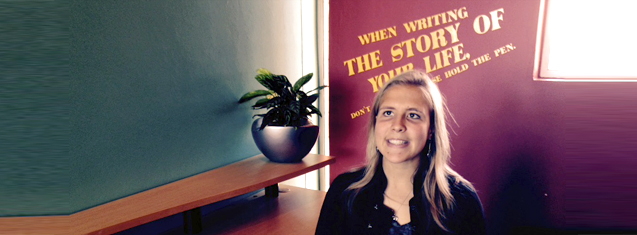Latest News Archive
Please select Category, Year, and then Month to display items
02 January 2025
|
Story Gerda-Marie van Rooyen
|
Photo Supplied
 Leading the research in South Africa is Prof Linus Franke from the Department of Soil, Crop and Climate Sciences.
Leading the research in South Africa is Prof Linus Franke from the Department of Soil, Crop and Climate Sciences.
Scientists are actively pursuing the successful breeding of diploid hybrid potatoes from inbred lines. This is expected to revolutionise potato breeding as it holds the key to rapid genetic progress. It will introduce new varieties for commercialisation through seed. Currently, existing potato variants have a gene that renders self-pollinated seeds infertile.
Prof Linus Franke, an academic in the Department of Soil, Crop and Climate Sciences at the UFS, is leading the research in South Africa. “This technology allows the production of genetically uniform potato seed that is easy to transport and largely disease-free.” He says this differs from conventional breeding whereby only vegetative propagation is possible due to tetraploid varieties in potatoes. It also risks carrying pests and diseases from one generation to the next – leading to the accumulation of pests and diseases with each round of multiplication.
Seed innovation
Prof Franke explains that Solynta BV, a seed company based in the Netherlands that produces potato varieties that can be grown from seed, has included South Africa in their research efforts because it is one of Africa’s largest producers and exporters. Through his academic relationship with Wageningen University and Research, a Dutch institution renowned for its agricultural endeavours and food production, the UFS became involved in researching hybrid potatoes grown from seed.
Diploid seeds containing two sets of chromosomes allow easier gene manipulation to increase predictability and speedier genetic progress. The breeding approach enables the incorporation of tolerance to pests, diseases, abiotic stresses (cold, heat, drought) and other desired genetic traits.
Although Prof Franke is optimistic about this research, he is not blind to disadvantages. “Potato seeds are tiny and have little energy reserves, making it harder to grow potatoes from seed than from tubers.” He says potatoes from seed will take longer to cultivate than tubers, as farmers need to grow plantlets from seeds first, adding six weeks to the growing period. “It is possible that commercial farmers can grow potatoes directly from seed. Alternatively, perhaps more likely, specialised growers will produce tubers of potatoes from seed; these tubers are then sold as seed tubers to other potato farmers, who then continue their normal practices of producing potatoes for the market from tubers.”
Financial benefits
Prof Franke says farmers have reason to get excited. “Seed potatoes will reduce input costs, as varieties with enhanced tolerance to pests and diseases require less pesticides. Planting one hectare of potatoes requires three to four tonnes of potato tubers, but only one 25 g packet of potato seeds.” Since potatoes are a more valuable commodity than maize, this technology might also increase farmers’ income potential.
A woman with a vision and dreams
2014-09-19

Louzanne Coetzee recently made Kovsie -history when she became the first blind woman to be elected to the SRC in the portfolio for Student Accessibility and Support. She has not even considered standing for the SRC before, though.
“I wanted to create awareness of disabled students on campus,” Louzanne says. “By running for SRC and this specific portfolio, I thought it would be a great way to do so.” She has a lot of ideas on how to make the portfolio function better and to link the accessibility and support braches of the portfolio.
Louzanne has a passion for leadership. “I think this is a great platform for me to live out my values.” She describes herself as dynamic, but admits that she often pushes herself very hard to achieve the goals she has set out for herself. “I’m also very competitive. But I believe I can make it work to my advantage by setting goals regarding my leadership position on campus to make them happen.”
Having won several gold medals at athletic track events, Louzanne also aims to be selected for the South African 2016 Paralympics team.
And the one dream after another coming true for her, arises from a firm belief in the right attitude.
“I believe that with one’s attitude one can achieve anything. My personal motto has always been ‘mind management is life management’. One of the greatest lessons I have ever learned is that everything is determined by your attitude. The latter determines how you live your life and handle situations.”